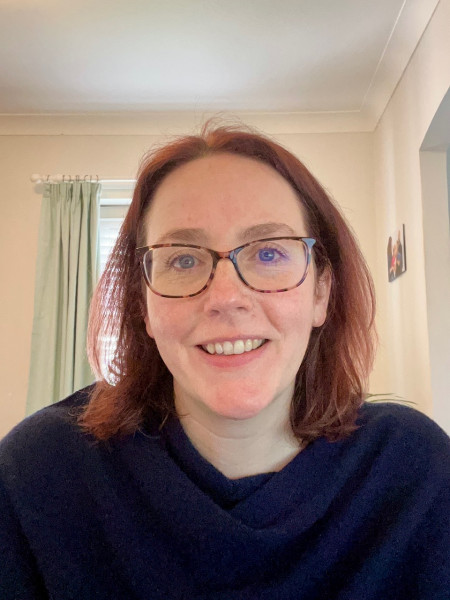
Prf Virginia Harrison
Professor Of Psychology
Biography
Professional biography
I am Professor of Psychology at The Open University. I am also the Co-Director of the Open Psychology Research Centre (OPRC).
Professional links and affiliations
- Founding member of the Perinatal Research Group
- Chartered Psychologist and Associate Fellow of The British Psychological Society
- Member of the British Psychosocial Oncology Society: BPOS
Qualifications
- DPhil in Psychology (University of Sussex)
- MSc in Developmental Psychology (University of Susssex)
- BSc (Hons) in Psychology (University of York)
Research interests
I am an applied cognitive researcher working across various different domains. Most of this work is carried out within two broad areas: clinical psychology, and forensic and criminal justice work.
My clinical work focuses broadly on wellbeing, and is concerned with the measurement, manifestation and treatment of stress, anxiety and depression. I work with different cohorts who often experience elevated levels of stress due to the context they are in, in particular women in the perinatal period, oncology patients, and those occupationally exposed to stressful situations (such as emergency responders). As part of this work, I am involved in research into the implementation and effectiveness of eHealth tools to promote mental health and support wellbeing.
Beyond this, I am also interested in the ill-health effects of exposure to neurotoxic compounds (particularly organophosphates) in terms of general cognitive deficits and mood disorder.
My more forensic research examines how well people perform as witnesses (i.e. in terms of face recognition). I am particularly interested in how we become experts in face recognition, how this changes with age, and what cognitive and neural mechanisms and/or social behaviours may underlie this expertise. Of additional interest to me is how social interest and exposure to certain groups of people may affect our ability to recognise them. I also carry out work examining police attitudes towards line-up procedures and investigating potential barriers to implementing more evidence-based policing.
I am a member of the following research groups: Forensic Psychology Research Group, Harm and Evidence Research Collaborative (HERC), Centre for Police Research and Learning, OU Mental Health Research Group
Teaching interests
I have been part of the presentation teams for the following modules:
- Investigating Psychology 1 (DE100)
- Investigating Psychology 2 (DE200)
- Investigating Psychology 3 (DE300)
- Exploring psychology (DSE212)
- Cognitive psychology (DD303)
- Advanced experimental design and analysis (D841)
- Research methods dissertation in social science (D845)
I have also played a key role in the production of the following modules:
- Investigating Psychology 1 (DE100)
- Investigating Psychology 2 (DE200)
- Investigating Psychology 3 (DE300)
- Critically exploring psychology 1 (D810)
- Critically exploring psychology 2 (D811)
I am also responsible for overseeing the Research Methods teaching across the entire Psychology qualifications at both UG and PG level.
Impact and engagement
I have developed a number of OpenLearn resources, including:
Stress and Anxiety in the Digital Age
Managing Digital-Related Stress
I am also currently developing an eHealth resource to help support women experiencing perinatal anxiety.
Publications
Book
Book Chapter
Journal Article
Supporting the wellbeing of oncodriven lung cancer patients online: a qualitative study (2024)
Eyewitness identification procedures: Do researchers and practitioners share the same goals? (2021)
Entitlement to Tell on Police Facebook Sites (2019)
Are you talking to me? How identity is constructed on police-owned Facebook sites (2018)
Anxiety and depression following cumulative low-level exposure to organophosphate pesticides (2016)
An emerging concern: Toxic fumes in airplane cabins (2016)
Mobile mental health: review of the emerging field and proof of concept study (2011)
Evidence for a contact-based explanation of the own-age bias in face recognition (2009)
Cognitive impairment following exposure to organophosphate pesticides: a pilot study (2007)
Other
Using eHealth to support the wellbeing of lung cancer patients; a systematic review. (2024)
Presentation / Conference
Are you talking to me? A qualitative study of Facebook use by two police forces (2024)
Charity sector wellbeing support for UK police (2021)
Emergency Responders Mental Health & Wellbeing Project (2020)
Exploring charity sector wellbeing support for police (2019)
Supporting perinatal anxiety in the digital age: an exploration of stressors and support (2019)
The use of Facebook in creating police identity (2018)
Can Social Categorisation Elicit Own-Group Biases in Face Recognition (2018)
What’s so ‘super’ about super recognisers? (2016)
Police perceptions of eyewitness evidence and research (2015)
Revisiting a social-cognitive explanation of own-group biases in face recognition (2014)
myCompass: mobile phones as a monitoring and management tool for mood and anxiety problems (2010)
Expertise and the own-age bias in face recognition: Evidence from an inversion study (2008)
Evidence for a contact based explanation of the own-age bias in face recognition (2007)
Presentation / Conference Contribution
Report
Assessing the mental health and wellbeing of the Emergency Responder community in the UK (2020)
A glimpse into the realm of police wellbeing charities (2020)